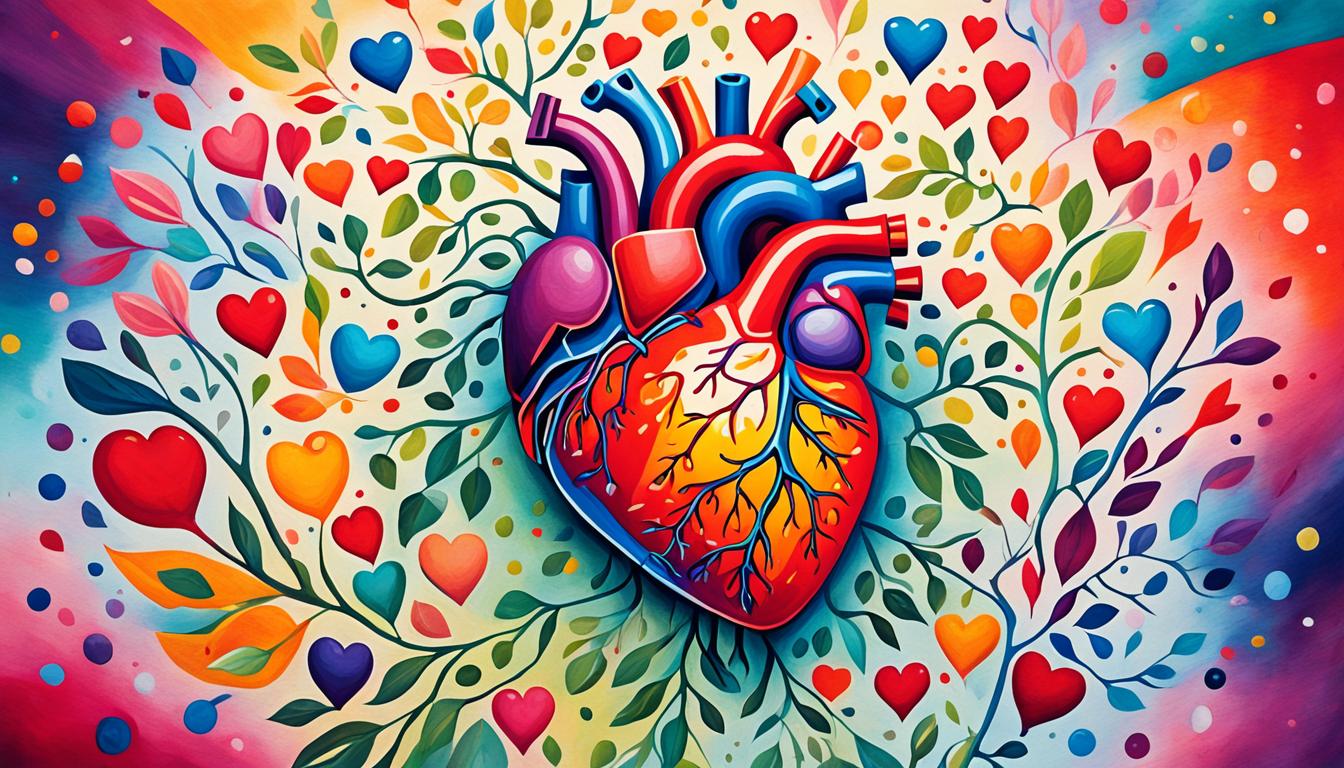Heartbreak is a common experience that leaves many in emotional turmoil and a deep sense of loss. Acknowledging this reality is the initial step towards surviving heartbreak. As you navigate through the complex emotions tied to relationship endings, it’s vital to employ effective coping strategies. Understanding your feelings, practicing healthy self-care, and building a support network can turn these moments of distress into opportunities for growth and self-awareness.
Many individuals turn to counseling services during times of heartbreak. If these emotional struggles are not addressed, they can escalate, sometimes leading to thoughts of self-harm. It’s crucial to process your feelings rather than bottling them up. Keeping a journal is an effective method that can provide a new perspective on your emotions and experiences.
As you move through this healing process, remember that break-ups are often a natural part of dating. Setting aside self-blame and focusing on establishing routines can help you create a sense of stability and normalcy. This aids in your recovery. Engaging in activities that bring joy and relaxation helps you rediscover happiness, showing that coping with heartbreak is both a challenge and an opportunity for resilience. Your path to healing is not just about moving on; it’s also about thriving in the aftermath.
Key Takeaways
- Heartbreak can lead to emotional distress similar to mourning.
- Keeping a journal helps in processing emotions more effectively.
- Engaging in self-care routines is crucial for healing post-breakup.
- Emotional support from friends and family plays a vital role in recovery.
- Minimizing contact with an ex-partner can enhance emotional recovery.
- Self-compassion practices can significantly reduce feelings of depression.
The Emotional Landscape of Heartbreak
Heartbreak from separation can stir a mix of emotions, including sadness, anger, and jealousy. It’s crucial to recognize these feelings as part of the emotional journey. They signify important stages in processing your emotions. Accepting these emotions helps you navigate this complex path.
Understanding Your Feelings
Ending a relationship can overwhelm you with feelings. It’s essential to acknowledge these emotions for healing. Many think they must suppress their feelings to move on. However, embracing your emotions helps you grasp the emotional landscape of heartbreak. Reflecting on these feelings can spark personal growth, revealing your strengths and areas for improvement.
Common Grieving Stages
Recovery often involves going through common grieving stages. You might feel shock or denial first, followed by bargaining. Anger and deep sadness come next. Finally, acceptance helps you find your balance. Naming these stages can make the journey easier. A supportive network of friends and professionals can aid in navigating these emotional challenges.

Tips for Healing After a Breakup
Heartbreak can deeply affect your emotional and physical health. Healing involves allowing yourself to grieve fully. This process includes a mix of emotions like sadness, anger, loss, and relief. It’s crucial to accept these feelings to move forward.
Allow Yourself to Grieve
It’s vital to let yourself grieve during the healing process. Each emotion you experience plays a role in your recovery. Crying can help release built-up feelings, improving your mood and overall well-being.
By acknowledging and expressing these emotions, you’re taking a crucial step towards healing. Self-care activities, such as journaling, can help clarify your thoughts and process your feelings. Writing unsent letters can also serve as a powerful outlet for your emotions.
Don’t Fight Your Feelings
Emotions can be complex and hard to manage, and fighting them can prolong your distress. Knowing that heartbreak is a common experience can offer some comfort. Connecting with friends and family to share your feelings openly is essential.
Removing reminders of your ex from your space can help create a fresh start. Healing is a unique journey for everyone. Acknowledging your feelings and engaging in activities like exercise and mindfulness can boost your emotional health. For more tips on coping, check out this helpful resource.

Strategies for Moving On
After a breakup, finding effective strategies for moving on can significantly aid in the healing process. Creating new routines becomes essential to restore a sense of normality. By establishing daily patterns such as regular meal times, sleep schedules, and work habits, you can regain stability in your life. This consistency can help replace the uncertainty that often follows heartbreak.
Creating New Routines
Creating new routines not only offers structure but also opens the door to self-discovery. Using this time to engage in activities you love fosters rejuvenation. Consider exploring hobbies, perhaps trying out that cooking class you’ve always wanted to take, or rediscovering your passion for painting. Engaging with these new interests can spark joy and play a pivotal role in your journey of moving on after a breakup.
Rediscovering Yourself
Embracing this transitional phase allows for a valuable opportunity to rediscover yourself. Heartbreak often clouds your sense of identity, making it crucial to take a step back and evaluate what truly brings you happiness. Utilize this time for self-reflection without self-judgment. Engage in experiences that resonate with your passions and values. This journey of self-exploration not only promotes healing but also empowers you to move forward with a stronger sense of self.
Surviving Heartbreak: Gather Your Support System
When you’re navigating the emotional storm of heartbreak, understanding the value of human connections is crucial. It’s essential to build a support network around you. Friends and family can offer solace and comprehension when your heart is burdened. Surrounding yourself with those who uplift you is key to healing and managing your emotions.
Assembling Your Support Team
Creating a dependable support network means connecting with those who truly care about your well-being. Choose friends or family who show empathy and are ready to listen. Sharing your story with them can create a sense of belonging, reducing feelings of isolation. This communal approach to grief, seen across cultures, is known for its therapeutic effects. By opening up to your support system, you foster deeper understanding and emotional growth.
Talking About Your Feelings
Talking through your feelings is a potent way to ease emotional pain. Many find solace in sharing their heartaches, as it makes the experience feel less unique. Unloading your frustrations or fears can make the burden of grief more bearable. Expressing your emotions not only aids in healing but also allows your support team to offer valuable advice. By being open with your feelings, you encourage others to share their stories, strengthening your connections.
Coping Mechanisms: Healthy vs. Unhealthy
Understanding the distinction between healthy and unhealthy coping strategies is crucial when dealing with emotional turmoil after a breakup. The initial stages often bring intense feelings like sadness, anger, and confusion. Engaging in unhealthy coping methods, such as excessive drinking or isolating oneself, can extend your struggle and lead to more severe issues. It’s vital to confront these challenges directly for your recovery.
Avoiding Unhealthy Coping Strategies
Be aware of behaviors that may initially seem comforting but can become harmful over time. Unhealthy coping strategies, including drug abuse or self-harm, can worsen emotional wounds instead of easing them. Instead, focus on finding healthier alternatives that promote healing and emotional support. Seeking professional help or relying on friends and family for support is a healthier choice. These connections can greatly help in managing emotions, reducing depression, and helping you find balance.
Identifying and Nurturing Healthy Habits
To build resilience, adopt healthy coping strategies that enhance mental wellness. Activities like journaling, exercising, and meditation can be effective outlets. Journaling helps you process your emotions and gain a new perspective on your experiences. It’s also crucial to maintain basic self-care, including regular meals and sleep, during this time. Creating new routines can provide much-needed structure in your life, benefiting both your physical and mental health.
Self-Care Practices After a Breakup
After a breakup, focusing on self-care is essential for your emotional and physical health. It’s vital to prioritize basic needs like adequate sleep, balanced nutrition, and regular exercise. These often suffer post-breakup but are crucial for recovery.
Prioritizing Basic Needs
Creating a daily routine that includes self-care can greatly improve your mood. Simple activities like journaling, yoga, or walking outdoors are beneficial. Spending two hours in nature weekly can boost mental health significantly. These practices help you process emotions and enhance your self-awareness.
Engaging in Pleasurable Activities
Enjoying fun activities can distract you from the pain of a breakup. Dive into hobbies you love, such as reading, gardening, or pampering yourself at a spa. Focusing on happiness redirects your energy positively. Engaging in pleasurable activities aids in healing and fosters personal growth and emotional strength.
Building Emotional Resilience
Emotional resilience is key after heartbreak. It helps you recover from tough times and deal with hard feelings better. Learning to manage your emotions is crucial for this journey. It keeps your perspective healthy as you work through your pain.
Understanding Emotional Regulation
Mastering emotional regulation means you respond to your feelings, not just react. This skill lets you grieve at your own speed. Techniques like mindfulness boost your ability to handle stress and anxiety. Regular walks, for example, are not just exercise but also improve emotional health, bringing calm and clarity.
Practicing Self-Compassion
Self-compassion is vital for emotional resilience. Knowing your emotional journey has ups and downs prepares you for what’s ahead. Be kind to yourself as you go through these feelings. Accepting your imperfections helps with healing and growth. Remember, recovery is not linear; patience with yourself is key as you rebuild.
The Importance of Setting Boundaries
Setting boundaries is crucial for healing after a breakup. It can greatly affect your emotional health. Going no-contact with your ex gives you the space to focus on healing and growing.
Going No-Contact with Your Ex
Choosing a no-contact rule is key to avoiding emotional distress. It stops the triggering of painful memories and allows for self-reflection. This distance helps you reclaim your identity, often lost in codependent relationships.
Deciding to cut ties makes healing easier. It leads to new beginnings free from past influences.
Establishing Healthy Boundaries
Clear boundaries shield you from further hurt and confusion. They define what makes you feel safe and valued. These boundaries, whether emotional, physical, or about time, show self-respect.
Healthy boundaries boost self-confidence, helping you stand up for your needs. Honoring your boundaries ensures a positive future in relationships. It keeps your sense of self intact while interacting with others.

Redirecting Your Energy
After a breakup, it’s crucial to redirect your feelings into productive outlets. Channeling your energy towards new goals can lead to personal growth and healing. This period is a chance to invest in activities that excite you deeply.
Exploring New Hobbies
Engaging in new activities can significantly shift your focus. Exploring new hobbies not only distracts you from negative emotions but also brings joy and fulfillment. Whether it’s joining a dance class, learning to play a musical instrument, or delving into creative writing, these experiences can ignite your enthusiasm and inspire personal development.
Investing Time in Yourself
Investing time in yourself is vital for healing. Make self-care a priority and explore your interests. Cultivating new hobbies, such as painting or hiking, can provide a sense of accomplishment. As you define your identity outside of the relationship, reconnecting with your essence becomes a transformative journey of self-discovery.

Learning from the Experience
Heartbreak often leads to profound insights, making it essential to reflect on your experiences. This reflection can transform pain into valuable lessons. It enables you to evaluate the circumstances that led to the breakup and gain clarity on what you truly want in a relationship.
Finding Meaning in Your Heartbreak
Each heartbreak presents an opportunity for personal growth. By analyzing your past relationships, you can discover patterns and make better choices in the future. Finding meaning in your heartbreak allows you to appreciate the lessons learned, which can ultimately guide you toward healthier connections. It’s about embracing the journey of self-discovery while recognizing that pain can lead to strength.
Assessing Relationship Patterns
Understanding your relationship patterns is critical. By closely examining the dynamics that contributed to your previous connections, you can identify recurring issues. Assessing relationship patterns offers insight into your expectations and behavior during partnerships. This knowledge empowers you to break unhealthy cycles and build more fulfilling relationships moving forward.
Embracing the Future: Hope and Healing
After the turmoil of heartbreak, setting a new course for your future is crucial. It’s essential to let go of past relationships to move forward. This process involves embracing hope and healing, acknowledging lessons learned, and recognizing the need to progress. Clinging to past emotions can stifle your growth and cloud your vision of future connections.
Letting Go of Past Relationships
To start anew, you must shed the weight of past relationships. Crafting a vision for your future is key. Reflect on your past, acknowledging the pain, yet don’t let it dictate your view of love. Seek guidance from books and podcasts to aid your healing. These resources can help you process emotions and boost your self-esteem, highlighting your positive qualities.
Maintaining Faith in Future Connections
As you heal, nurturing hope is vital. Trust that meaningful relationships are on the horizon. Celebrate small victories to remind yourself of your strength. Your growth, supported by self-care and friends or professionals, sets the stage for joyful connections. Healing is a gradual process. With each step, you open up to new love, filled with hope and healing.
Conclusion
Surviving heartbreak is a monumental challenge in life, affecting both your mental and physical health deeply. Studies show that those going through breakups often struggle with emotional control. Thoughts of the lost partner can dominate their minds for up to 85% of the time. Yet, by adopting the healing strategies discussed, you can start to overcome heartbreak with resilience and self-compassion.
Healing from a breakup is a slow process. Begin by reflecting on the relationship’s end to understand its causes. Acceptance is crucial for moving forward. Engaging in new activities, trying out hobbies, and making new friends can aid in emotional healing. Remember, focusing on physical health through exercise can be more effective than traditional medicine.
The aim is not just to survive heartbreak but to thrive afterwards. This journey offers a chance for personal growth and deeper self-awareness. Embrace the lessons from your heartbreak to improve future relationships. With time and self-care, you’ll not only survive but come out stronger, ready to love again.
FAQ
What are common emotional responses after a breakup?
How can I allow myself to grieve effectively?
What self-care practices should I focus on after a breakup?
How do I build emotional resilience during this time?
What are healthy coping mechanisms I should adopt?
Why is it important to have a support system after a breakup?
How can setting boundaries help me move on?
What activities can I explore to redirect my energy positively?
How can I learn from my heartbreak?
Is it normal to struggle with moving on after a breakup?
Source Links
- PDF – https://www.mcgill.ca/counselling/files/counselling/surviving_a_break-up_-_20_strategies_0.pdf
- Navigating the Aftermath: A Guide to Healing and Thriving After a Break-Up – Just Mind – https://justmind.org/navigating-the-aftermath-a-guide-to-healing-and-thriving-after-a-break-up/
- Moving On: Practical Steps for Healing After a Breakup or Divorce – https://medium.com/@jenslifecoaching/moving-on-practical-steps-for-healing-after-a-breakup-or-divorce-f39bc34916af
- How to Use Nature to Heal from Heartbreak | Florence Williams – https://humansoutside.com/podcasts/florence-williams-humans-outside-podcast-2022/
- How To Survive A Broken Heart: Advice From Someone Who’s Been There – https://capsulenz.com/be/broken-heart/
- 8 Ways to Feel Better After a Breakup, According to the Experts – https://www.verywellmind.com/8-ways-to-feel-better-after-a-breakup-5089116
- “How to mend a broken heart?”: 8 ways to cope with heartbreak — Calm Blog – https://www.calm.com/blog/how-to-mend-a-broken-heart
- How to Survive a Broken Heart – Dr Debra Campbell – https://www.drdebracampbell.com/how-to-survive-broken-heart/
- How to get over a heartbreak: 10 ways to heal your heart and move forward – https://www.today.com/life/relationships/how-to-get-over-a-heartbreak-rcna49356
- Your Heart is Designed to Grieve ~ Learning to Live with Heartbreak, Your Gateway to Love – https://www.vincegowmon.com/your-heart-is-designed-to-grieve/
- The grief of heartbreak: How to survive losing the love of your life – https://www.irishtimes.com/culture/books/2022/06/25/the-grief-of-heartbreak-how-to-survive-losing-the-love-of-your-life/
- 11 Healthy Ways to Cope With a Breakup – SF Stress & Anxiety Center – https://sfstress.com/how-to-cope-relationship-breakup/
- How to Cope with a Breakup: A Step-by-Step Guide – https://www.healthline.com/health/coping-with-break-up
- Coping with a Breakup or Divorce – HelpGuide.org – https://www.helpguide.org/articles/grief/dealing-with-a-breakup-or-divorce.htm
- What to Do After a Breakup: 21 Do’s and Don’ts – https://www.healthline.com/health/what-to-do-after-a-breakup
- break-ups as rebirth: self-care for heartbreak — kening zhu – https://keningzhu.com/journal/break-ups-as-rebirth
- Dealing With A Broken Heart? Try This – https://www.healthline.com/health/how-to-heal-a-broken-heart
- How to Manage Intense Grief with Resilience-Building Strategies | Corporation for a Skilled Workforce – https://skilledwork.org/how-to-manage-intense-grief-with-resilience-building-strategies/
- How to survive heartbreak – https://www.telegraph.co.uk/health-fitness/wellbeing/mental-health/how-to-survive-heartbreak/
- Setting Boundaries with an Ex: 4 Examples – https://psychcentral.com/relationships/set-boundaries-with-your-ex
- Healthy Boundaries in Relationships – https://www.breakthecycle.org/blog/setting-boundaries-relationship/
- How I Overcame Anger After My Breakups – https://medium.com/the-ascent/how-i-overcame-anger-after-a-breakup-3ec5923cd974
- From Heartbreak to Healing: Navigating the 7 Stages of a Breakup – https://www.verywellmind.com/from-heartbreak-to-healing-navigating-the-7-stages-of-a-breakup-8552187
- How to get over your ex: The neuroscience of a broken heart. – https://lifewithlittleandlula.wordpress.com/2019/05/02/get-over-broken-heart/
- Lost Love: How to Survive Heartbreak and Seize the Future – https://tinybuddha.com/blog/lost-love-how-to-survive-and-seize-the-future/
- After 10 Heartbreaks, Here’s What I Finally Learned – https://medium.com/the-ascent/after-10-heartbreaks-heres-what-i-finally-learned-d4c70b656186
- Time Doesn’t Heal a Broken Heart – https://www.vishnusvirtues.com/healing-a-broken-heart/
- Finding Your Way Through Heartbreak: A Guide to Healing – The Traveling Island Girl – https://thetravelingislandgirl.com/2023/09/30/finding-your-way-through-a-heartbreak-a-guide-to-healing/
- This Is Your Brain on Heartbreak – https://greatergood.berkeley.edu/article/item/this_is_your_brain_on_heartbreak
- Healing from Heartbreak: A Step-by-Step Guide to Moving On – https://medium.com/@rfribeiro/healing-from-heartbreak-a-step-by-step-guide-to-moving-on-64c1e2d29049
- Surviving Heartbreak: Encountering the God Who Heals | Appointed Time Press, LLC – https://www.thewordsmithblog.com/surviving-heartbreak/


